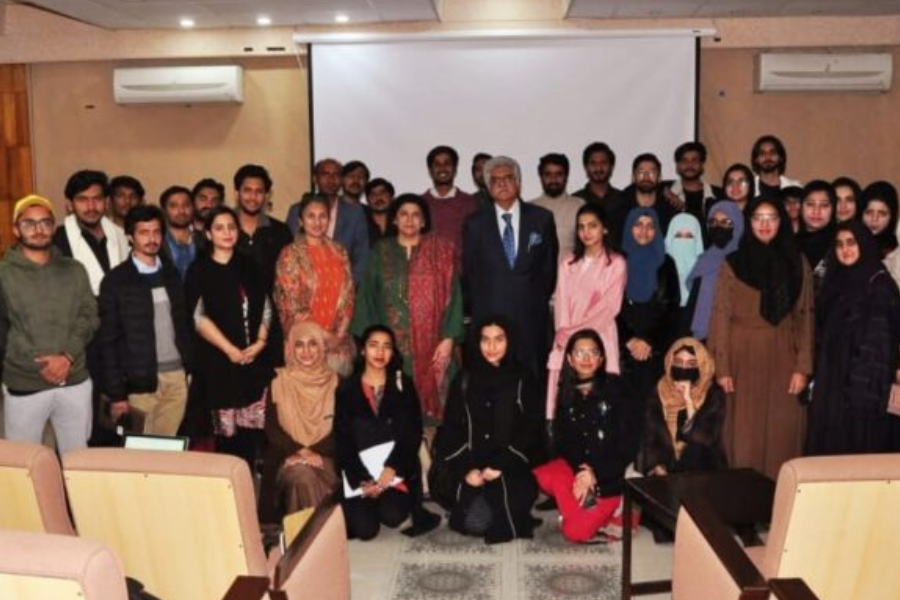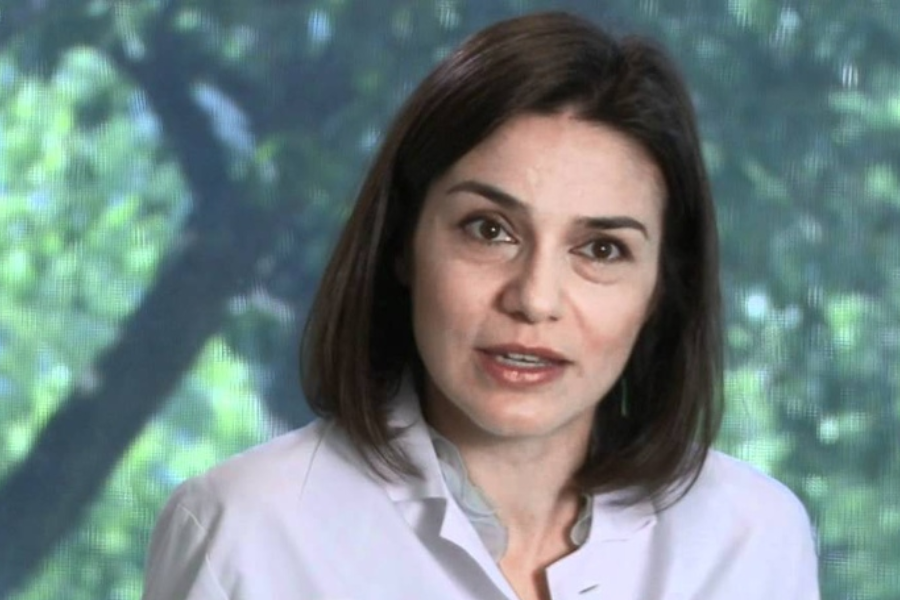Dr. Zena Al-Adeeb: The Controversy, Fallout, and Broader Implications
Introduction
Dr. Zena Al-Adeeb, a highly skilled dental professional, recently found herself at the center of a firestorm of controversy after being filmed removing posters of Israeli hostages. The incident, which occurred in Chestnut Hill, Massachusetts, at The Street shopping center, sparked outrage on social media, intensified debates about antisemitism, and led to her termination from the Nevins Dental Institute in Boston. This case offers a stark example of how personal actions, particularly in geopolitically sensitive situations, can have severe professional consequences.
In this detailed analysis, we will examine:
- The events surrounding the controversy,
- Public reactions and professional fallout,
- The role of media and social platforms in shaping the narrative,
- Broader implications regarding antisemitism, free speech, and healthcare professionalism, and
- Lessons to be learned from this incident.
By dissecting this case comprehensively, we can better understand how such controversies influence individuals, communities, and professional standards.
1. The Incident: What Happened?
The controversy began when Dr. Zena Al-Adeeb, a practicing endodontist, was captured on video tearing down posters depicting Israeli hostages. These posters, often seen in public areas, were part of an awareness campaign highlighting hostages taken during the ongoing Israel-Hamas conflict.
The incident took place at The Street, a popular shopping center in Chestnut Hill, Massachusetts, a suburb of Boston. The video, filmed by an onlooker and shared on social media platforms, quickly went viral. In the footage, Dr. Al-Adeeb was seen removing the posters, an action that many perceived as insensitive, particularly given the heightened emotions surrounding the Israel-Palestine conflict.
Within hours of the video’s circulation, backlash emerged from multiple directions:
- Social Media Platforms: The video received thousands of shares and comments, with many users condemning the act as antisemitic.
- News Outlets: Local and international media outlets picked up the story, intensifying the public scrutiny.
- Community Leaders and Organizations: Several groups, particularly those advocating for the Israeli hostages, expressed anger and disappointment.

2. Professional Fallout: Immediate Termination
Dr. Al-Adeeb’s employer, the Nevins Dental Institute, responded swiftly. The dental practice issued a formal statement, distancing itself from Dr. Al-Adeeb’s actions and emphasizing its commitment to a respectful, inclusive environment. Shortly after, Dr. Al-Adeeb was terminated from her position as a dental specialist.
The statement released by Nevins Dental Institute underscored their values:
“We do not condone behavior that contradicts our commitment to fostering a professional, inclusive workplace. Our priority remains the well-being and trust of our patients and staff.”
Why the Dental Institute Responded Quickly
The decision to terminate Dr. Al-Adeeb reflects broader concerns about how businesses and institutions address controversies:
- Reputation Management: Dental and healthcare practices operate on trust. Actions seen as controversial can harm patient confidence.
- Public Pressure: The viral nature of the video put immense pressure on Nevins Dental Institute to respond swiftly and decisively.
- Ethical Standards: Healthcare professionals are often held to higher ethical and professional standards, even outside their workplace.
3. Public Reaction: Outrage, Polarization, and Discussion
The video of Dr. Al-Adeeb sparked polarized reactions:
A. Outrage on Social Media
Social media played a significant role in amplifying the incident. Platforms like Twitter, Facebook, and Instagram were flooded with comments, many condemning Dr. Al-Adeeb’s actions as antisemitic and inappropriate. Users expressed anger, calling for accountability and action.
Key themes in public reactions included:
- Antisemitism Concerns: Many saw her actions as disrespectful to the victims and reflective of antisemitic sentiments.
- Professional Responsibility: Critics argued that healthcare professionals, particularly those working in diverse communities, should remain neutral on sensitive political issues.
B. Support and Alternative Views
While the majority condemned Dr. Al-Adeeb, some defended her, arguing that the backlash was disproportionate. Supporters highlighted:
- Freedom of Expression: Some argued that individuals have the right to express their beliefs, even if controversial.
- Targeting Based on Ethnicity: A segment of supporters suggested that Dr. Al-Adeeb, who is of Arab heritage, was unfairly targeted due to her background.
The debate raised complex questions about the intersection of free speech, personal beliefs, and professional conduct.
4. The Role of Media: Shaping the Narrative
News outlets, both local and international, were quick to cover the incident. Prominent coverage appeared on platforms like NBC Boston, Ynetnews, and Jewish News, all of which analyzed the video and its broader implications.
A. How Media Framed the Incident
The media played a crucial role in framing public perception of the controversy:
- Local News: Local outlets emphasized the community’s reaction and the quick dismissal by Nevins Dental Institute.
- International Coverage: Publications with a focus on the Israel-Palestine conflict discussed the geopolitical significance of Dr. Al-Adeeb’s actions.
B. Media Influence on Public Opinion
The widespread media coverage amplified public scrutiny. By presenting Dr. Al-Adeeb’s actions as part of a larger debate about antisemitism and professionalism, the media intensified the controversy.
5. Broader Implications: Antisemitism, Free Speech, and Professionalism
The incident involving Dr. Al-Adeeb raises critical questions about larger societal and professional issues.

A. Antisemitism Concerns
The removal of posters featuring Israeli hostages reignited concerns about rising antisemitism worldwide. For many, the incident symbolized a lack of empathy for victims of violence. Critics argued that such actions, whether intentional or not, contribute to an environment of hostility.
B. Free Speech and Personal Expression
The debate also touched on issues of free speech and personal beliefs:
- Limits of Free Speech: While individuals have the right to express their views, actions in public spaces can carry consequences, especially when they offend others.
- Professional Responsibilities: Healthcare professionals are expected to uphold ethical standards, both inside and outside their workplaces. Dr. Al-Adeeb’s actions raised questions about where to draw the line between personal expression and professional responsibility.
C. Impact on Professionalism in Healthcare
This case highlights the importance of professionalism in healthcare. Trust is the foundation of the patient-provider relationship, and actions perceived as controversial can undermine that trust.
Key takeaways for healthcare professionals include:
- Sensitivity to Diverse Communities: Professionals must be aware of how their actions might impact diverse groups.
- Neutrality in Political Matters: While individuals have personal beliefs, professionals must exercise caution to avoid alienating patients or colleagues.
6. Lessons for Professionals and Institutions
The fallout from Dr. Zena Al-Adeeb’s case offers important lessons for both individuals and institutions:
A. For Healthcare Professionals
- Maintain Ethical Standards: Actions taken outside the workplace can affect professional credibility.
- Exercise Sensitivity: Be mindful of the emotional weight of geopolitical conflicts and their impact on patients.
- Understand Public Scrutiny: In an era of smartphones and social media, any action can be recorded and shared widely.
B. For Employers and Institutions
- Swift, Transparent Responses: Employers must respond promptly to controversies to protect their reputation.
- Clear Policies on Conduct: Institutions should establish guidelines for professional behavior, both in and outside the workplace.
- Cultural Awareness Training: Providing staff with training on cultural sensitivity can help prevent such incidents.
FAQs
Q: Who is Dr. Zena Al-Adeeb?
A: Dr. Zena Al-Adeeb is a skilled dental professional who previously worked as a dental specialist (endodontist) at Nevins Dental Institute in Boston.
Q: What Happened?
A: A video surfaced showing Dr. Al-Adeeb removing posters of Israeli hostages at The Street, a shopping center in Chestnut Hill, Massachusetts.
Q: What Were the Posters About?
A: The posters featured images and details of hostages allegedly abducted by Hamas, intended to raise awareness of their plight amid the Israel-Palestine conflict.
Q: Why Did This Become Controversial?
A: Many viewed Dr. Al-Adeeb’s actions as insensitive and potentially antisemitic, given the emotional and geopolitical weight surrounding the issue.
Q: What Was the Immediate Consequence?
A: Dr. Al-Adeeb was terminated from her role at Nevins Dental Institute following the widespread backlash and viral spread of the video.
Conclusion: The Complexity of Controversy
Dr. Zena Al-Adeeb’s case serves as a powerful example of how personal actions can have far-reaching consequences. While her intent may remain a topic of debate, the incident underscores the importance of professionalism, cultural sensitivity, and awareness in an interconnected world.
The controversy also raises broader questions about free speech, antisemitism, and how individuals navigate their personal beliefs in professional settings. For healthcare professionals, the incident highlights the need for careful consideration of their actions, as trust and credibility remain paramount.
Ultimately, this case serves as a reminder that in today’s hyper-connected society, even seemingly small actions can ignite significant discussions, influencing careers, communities, and public discourse.
Stay Connected: Express Internal


